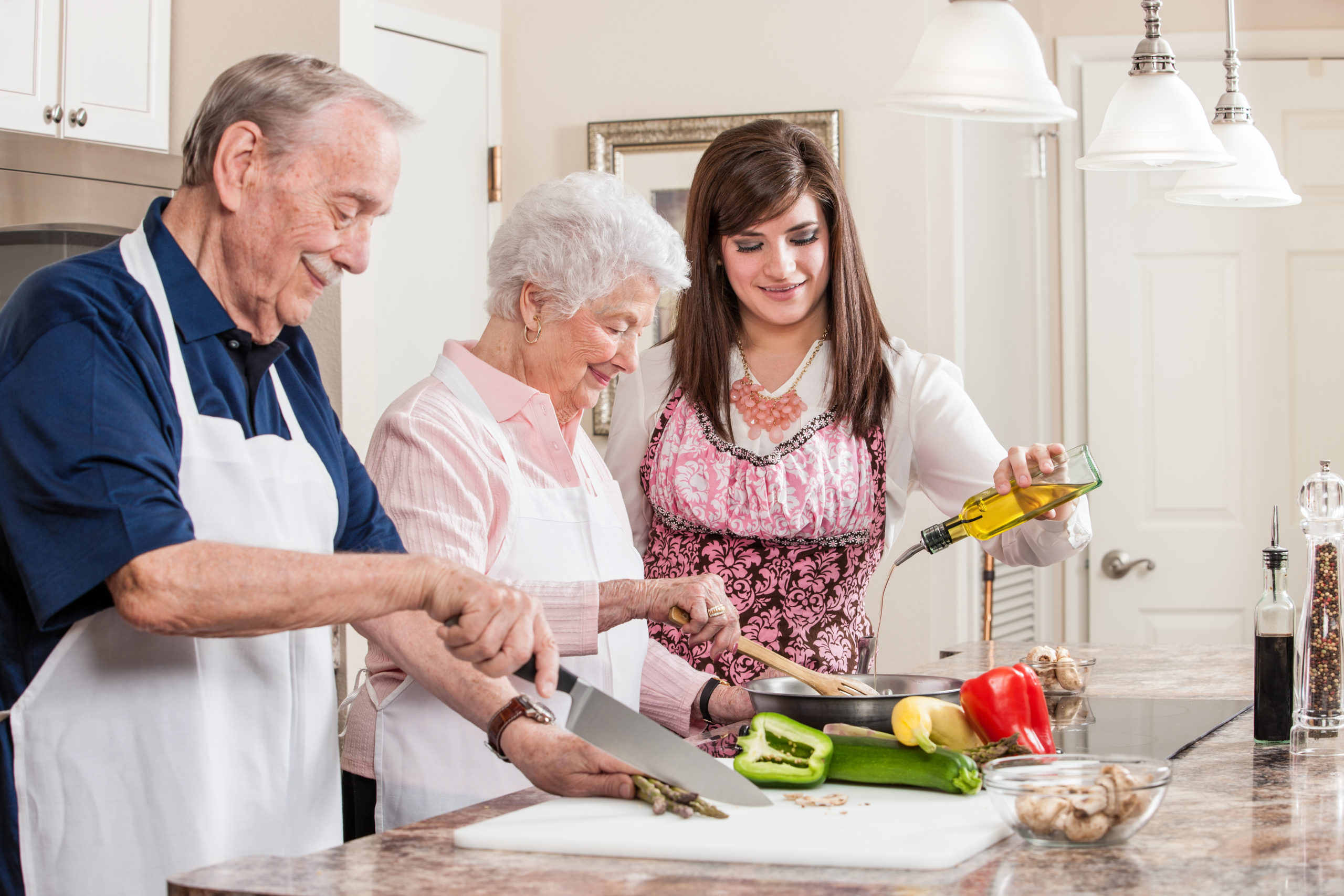November has been designated as National Family Caregivers Month, and the whole point of it is to raise awareness of the difficulty caregivers have in providing assistance to the elderly, usually beloved parents living at home.
Depending on the physical and mental circumstances of the senior loved one, it can be a major investment of time and effort just to help these patients get through another day. For most of the year, these caregivers silently deliver all necessary support and make life a little easier for their charges.
During the month of November, all of us should do what we can to support these caregivers, and try to understand the daily issues they face, so we can be supportive. Below, we’ll consider some of the ways that you might work with a caregiver for your family, to make their job a little easier and to help limit the stress they’re exposed to.
Respect privacy
For any caregiver working with your family to assist senior loved ones, it’s important that you know a little bit about them, and that you establish some kind of bond. At the same time, you need to respect their privacy and avoid prying if it becomes obvious that they’re not comfortable with sharing personal details. This should also be made clear to your loved ones so that they don’t invade the privacy of your caregiver and intrude on their personal lives.
The main thing you need from a caregiver is that they’re attentive in seeing to the needs of your loved one and that they can help your parents in any way possible. While it might be nice to know everything about your caregiver, it’s not strictly necessary in order for them to do a good job of caring for your senior parents.
Show appreciation
Everyone loves to be appreciated in their chosen profession, and caregivers are no exception. Rather than criticizing your caregiver for things that have gone wrong with your senior loved one, it’s better to focus on those things which have turned out well and have been successful. Pointing out possible improvements is fine if done tactfully, but be careful not to cross the line into outright criticism.
Also, If you see that your family’s caregiver is having a positive influence on your parents, it’s a good idea to compliment them and show them how much you appreciate that positive influence. When your parent has established a good relationship with your caregiver, it can only bode well for future relationships.
Establish good communications
One of the most important steps toward building a good relationship with a caregiver is establishing open communication. This is especially true if you have a caregiver who spends a great deal of time at your residence. Start right away by informing them what you expect from them, because they’ll always be able to do a better job when they know exactly what is required. If there’s something you don’t like about the caregiver, bring it up and discuss it, rather than holding back and talking to the agency about it. Keep an open line of communication with your caregiver, and it will facilitate their ability to provide the best care for your senior loved one.
Address problems appropriately
No matter how good your relationship with a caregiver is, there are bound to be situations where problems pop up. However, when problems do occur, you can still maintain a positive relationship with your caregiver by handling them in the most appropriate manner.
At some point in time, there are likely to be personality conflicts between the caregiver and your loved one, or there might be minor issues such as a caregiver showing up late. Whatever the problem might be, handle it without causing a great deal of tension to build up, and make sure you understand the entire problem before issuing any kind of judgment. If there’s something a caregiver did to make you angry, it’s better that you wait until you calm down before you address the subject with them. Flying off the handle never accomplishes anything good, and it won’t with your caregiver either.
Compassion and patience
Two of the best building blocks for a strong relationship are compassion and patience. Your caregiver needs to understand this, and you need to understand it in order to have a good working relationship with the caregiver. You will definitely want your caregiver to be compassionate and patient towards your senior loved one, so you should exercise the same kind of restraint when dealing with your caregiver. Keep in mind that your senior loved one will probably develop some misunderstandings with your caregiver, simply because they are unable to communicate their needs clearly.
When everyone can demonstrate a little more patience and compassion, the end result will always be more agreeable and more conducive to long-term peace and harmony in the household.
